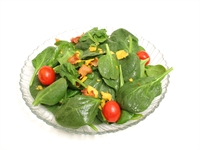
Health Benefits of Vitamin E
Important Notice: Our web hosting provider recently started charging us for additional visits, which was unexpected. In response, we're seeking donations. Depending on the situation, we may explore different monetization options for our Community and Expert Contributors. It's crucial to provide more returns for their expertise and offer more Expert Validated Answers or AI Validated Answers. Learn more about our hosting issue here.

Health Benefits of Vitamin E
You must be logged in to post a comment.
Vitamin E is a fat-soluble vitamin with powerful antioxidant properties. Antioxidants help reduce free radicals in the body that can cause damage to the body’s cells. Free radicals can cause aging, heart disease, cancer and other health conditions.
Vitamin E promotes healthy circulatory and immune systems, aids in the formation of red blood cells,aids in the use of vitamin K and protects cell membranes and tissue from oxidation damage. It helps the body absorb other important nutrients and protects the skin from harmful UV rays.
Studies have shown that vitamin E may help lower the risk of coronary heart disease. It may delay or prevent heart disease by limiting the oxidation of LDL cholesterol. Some studies suggest that an increased consumption of vitamin E may decrease the risk of a heart attack.
It is suggested that vitamin E may help prevent cancer, though most studies have been inconclusive. Many cancers are caused by damage to DNA by free radicals. Vitamin E helps protect the body against those damaging effects. Studies have shown that cancer patients often have lower levels of vitamin E.
There has been some evidence that vitamin E may help reduce the risk of Alzheimer’s disease or slow the progress of the disease. Diabetes may be controlled easier because of the antioxidants contained in vitamin E. It has also been shown to reduce the physical symptoms of PMS.
Vitamin E deficiency can cause muscle weakness, loss of muscle mass, impaired vision, abnormal eye movement, unsteady gait and liver and kidney problems.
Research has shown that vitamin E foods are more effective than vitamin E supplements. The American Heart Association recommends eating a well-balanced diet high in whole grains, vegetables and fruits to obtain vitamin E and other important vitamins and nutrients, until more information is known about the risks and benefits of supplements.
Wheat germ, liver, eggs, nuts, sunflower seeds, asparagus, yams, avocado, spinach, kale and collard greens are some foods that contain significant amounts of vitamin E. Topical creams and lotions that contain vitamin E are effective in helping to keep the skin younger and healthier. Vitamin E can enhance sunscreen effects and slow wrinkle production.
There have been concerns about taking vitamin E supplements in high doses. Some people may have an increased risk of bleeding, especially patients taking blood thinners. High amounts of vitamin E can also have negative interactions with certain prescription drugs. Before taking vitamin E supplements, check with a healthcare provider.